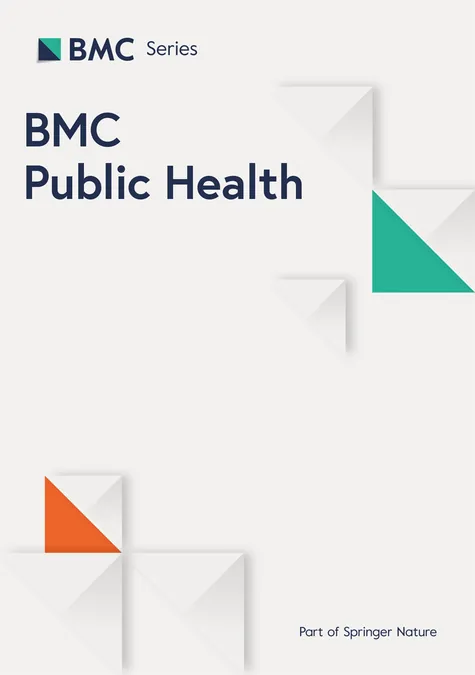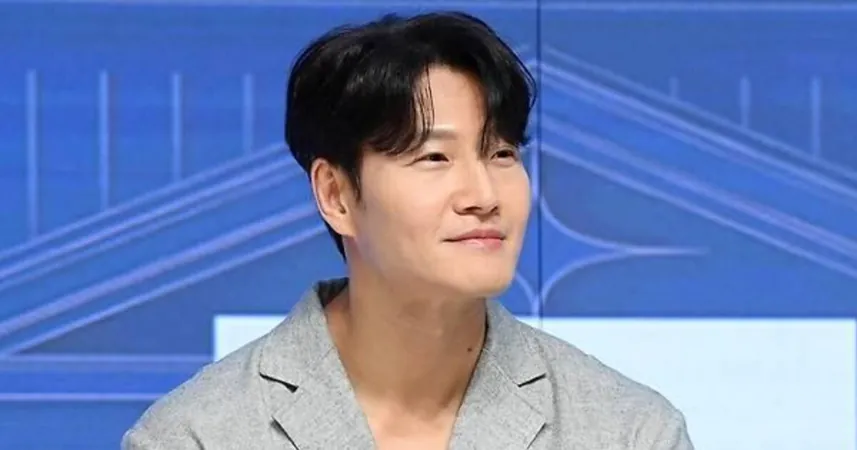
Unlocking the Secrets of Active Aging: How Physical Activity Transforms Health for Korean Baby Boomers
2025-09-01
Author: Wei Ling
The Crucial Shift for Korean Baby Boomers
As South Korea's baby boom generation, born between 1955 and 1963, transitions into their golden years, the spotlight is on healthy aging. With around 7.1 million individuals shifting from active professionals to retirement, understanding their health, particularly through physical activity, is paramount to tackle rising healthcare costs.
The Stark Reality of Inactivity
Physical inactivity doesn’t just slow people down; it significantly spikes the risk of diseases and even increases mortality rates. As many baby boomers must continue to work due to financial instability, promoting regular physical activity (PA) is essential for their health and well-being.
PA Guidelines and Current Statistics
The Ministry of Health and Welfare suggests that adults engage in at least 150 minutes of moderate-intensity exercise weekly. Shockingly, while only 28% of Americans meet these guidelines, a more promising 44.9% of South Koreans hit the benchmarks as of 2021. To gather accurate PA data, health surveys like the International Physical Activity Questionnaire (IPAQ) are frequently employed, ensuring a comprehensive understanding of physical health.
The Hidden Benefits of Regular Exercise
Studies show that seniors who participate in structured exercise can cut down their healthcare costs significantly. Those with higher levels of PA also visit healthcare facilities less frequently—54% fewer times—than their less active counterparts. Surprisingly, those who choose to be active voluntarily experience greater psychological well-being compared to those who exercise out of necessity.
A Unique Generation with Distinct Needs
Unlike past generations, modern Korean baby boomers have lived through profound societal transformations. Often dubbed the ‘new seniors,’ their approach to aging is active and engaged, necessitating tailored research and public health strategies.
Impending Challenges for the Welfare System
As this significant demographic ages, South Korea's pension system is projected to face deficits by 2040, with funds depleted by 2055. The necessity of promoting an active lifestyle among baby boomers becomes even more urgent, not just for their personal health but for the sustainability of the national welfare system.
Research Insights from the 2022 Community Health Survey
Utilizing data from nearly 230,000 participants in the 2022 Korea Community Health Survey, researchers examined the health behaviors and outcomes of adults aged 59-67, unveiling key correlations between physical activity levels, income, and health status.
Diving Into Demographics: Key Findings
Among the 47,132 participants, a deeper dive showed men grappling more with obesity and hypertension, while women faced greater mental health challenges—revealing significant differences in health needs between the genders.
Physical Activity's Vital Role in Health Prevention
Findings indicate a strong link between higher PA levels and lower risks of obesity, diabetes, depression, and stress for both genders. Notably, moderate PA offers substantial mental health benefits, especially for women.
Addressing Economic Disparities in Health
The study illuminated stark disparities in PA participation based on income, revealing that lower-income baby boomers were significantly less active. This finding suggests a direct correlation between socioeconomic status and health outcomes, underscoring the necessity for targeted interventions.
Policy Implications and Future Directions
Our research emphasizes the need for public health policies that champion physical activity, especially tailored towards older women and lower-income groups. Providing financial support for community exercise programs and expanding access to affordable PA resources can foster healthier aging.
Conclusion: A Call to Action
As Korean baby boomers emerge into their later years, promoting an active lifestyle is not merely beneficial—it’s essential. With appropriate strategies, we can bolster their health and mitigate the impending burdens on our welfare system. We owe it to this remarkable generation to ensure they age actively and gracefully.


 Brasil (PT)
Brasil (PT)
 Canada (EN)
Canada (EN)
 Chile (ES)
Chile (ES)
 Česko (CS)
Česko (CS)
 대한민국 (KO)
대한민국 (KO)
 España (ES)
España (ES)
 France (FR)
France (FR)
 Hong Kong (EN)
Hong Kong (EN)
 Italia (IT)
Italia (IT)
 日本 (JA)
日本 (JA)
 Magyarország (HU)
Magyarország (HU)
 Norge (NO)
Norge (NO)
 Polska (PL)
Polska (PL)
 Schweiz (DE)
Schweiz (DE)
 Singapore (EN)
Singapore (EN)
 Sverige (SV)
Sverige (SV)
 Suomi (FI)
Suomi (FI)
 Türkiye (TR)
Türkiye (TR)
 الإمارات العربية المتحدة (AR)
الإمارات العربية المتحدة (AR)